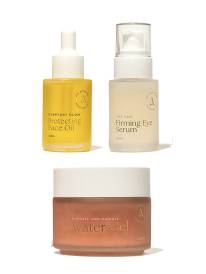Bone Up on ways to Prevent Osteoporosis
Bone Up on ways to Prevent Osteoporosis
NPS MedicineWise is urging Australians to minimise their risk of osteoporosis from an early age through diet and lifestyle changes. This follows a nationwide program working with doctors to improve detection, diagnosis and management of the condition.
Osteoporosis is a condition where bones become fragile and brittle, causing them to break or crack more easily than normal bone. Fractures can cause pain and disability and affect quality of life, so the goal of treatment is to prevent fractures.
Osteoporosis-related conditions currently affect 10% of the population – a figure expected to rise to over 13% by 2021, according to Osteoporosis Australia.
NPS Deputy CEO, Karen Kaye, says people can help prevent osteoporosis throughout their lifetime by maintaining good bone health, including getting enough calcium in their diet, vitamin D and physical activity. 'While osteoporosis mostly affects older people, looking after your bones throughout your life can help prevent it. Getting enough calcium is crucial in childhood and adolescence, when bones are growing, and it remains an important part of maintaining bone health throughout adulthood. Research shows that less than half of all Australian adults get their daily recommended intake of calcium so people should aim to eat three serves of dairy or other calcium-rich food every day," says Ms Kaye.
Ms Kaye also reminds Australians that vitamin D is essential for calcium absorption.
'The best natural source of vitamin D comes from exposing bare skin to sunlight. Most people can get enough vitamin D through short periods of sun exposure, outside of peak UV times, however some people may need a supplement," says Ms Kaye.
Physical activity is another important component of helping bones to stay strong. As well as maintaining bone strength, it can improve balance, physical strength and stability, which help to prevent falls - a common cause of fractures in people with osteoporosis.
'Unfortunately, many people with osteoporosis are not diagnosed until a fracture occurs due to the -silent' nature of the disease, meaning there are often no obvious symptoms," says Ms Kaye.
Older people can help avoid fractures by finding out their risk of fracture early on from their doctor and implementing changes suggested. GPs now have access to new risk calculators that help assess a person's risk of having a fracture over the next 5 and 10 years.
It is recommended that you talk to your GP about your risk of osteoporosis and fracture especially if you are 65 years or over. Having a fracture after a fall or slight injury, or having frequent falls are also good reasons to talk to your doctor about your risk of osteoporosis if you are in the older age group. Women going through menopause, including early menopause (40 to 45 years of age) should also talk to their doctor, as bone strength declines after menopause.
Medicinewise tips to help prevent osteoporosis:
Eat 3 serves of dairy or other calcium-rich foods every day. For people who don't eat dairy products other good sources of calcium include almonds, tofu, tinned salmon and baked beans, but how much you need may vary. Supplements are only useful if dietary intake is inadequate.
Be active - undertake regular physical activity and ask your doctor or physiotherapist about exercises suitable for you that build strength, balance and healthy bones
Get regular safe sun exposure to maintain vitamin D levels
Moderate alcohol intake
Quit smoking: smoking affects your bones
If you are a woman who has been through menopause or going through it, ask your doctor about your risk of osteoporosis
Inform your GP if you have a family history of osteoporosis.
For further information on osteoporosis visit www.nps.org.au/osteoporosis
MORE
- Aussies Turning to Cyberspace to Self-Diagnose
- Waking up to the Dangers of Diabetes
- World Sight Day
- Your Cholesterol
- Go Ahead Take The Shot
- Do Brain Games Ward off Dementia?
- Complexity of Allergic Disease Impacts Patient...
- Carol Ireland and Renee Elliott Epilepsy Interview
- Bone Up on ways to Prevent Osteoporosis
- How Do You Stop Being Bullied Online?





